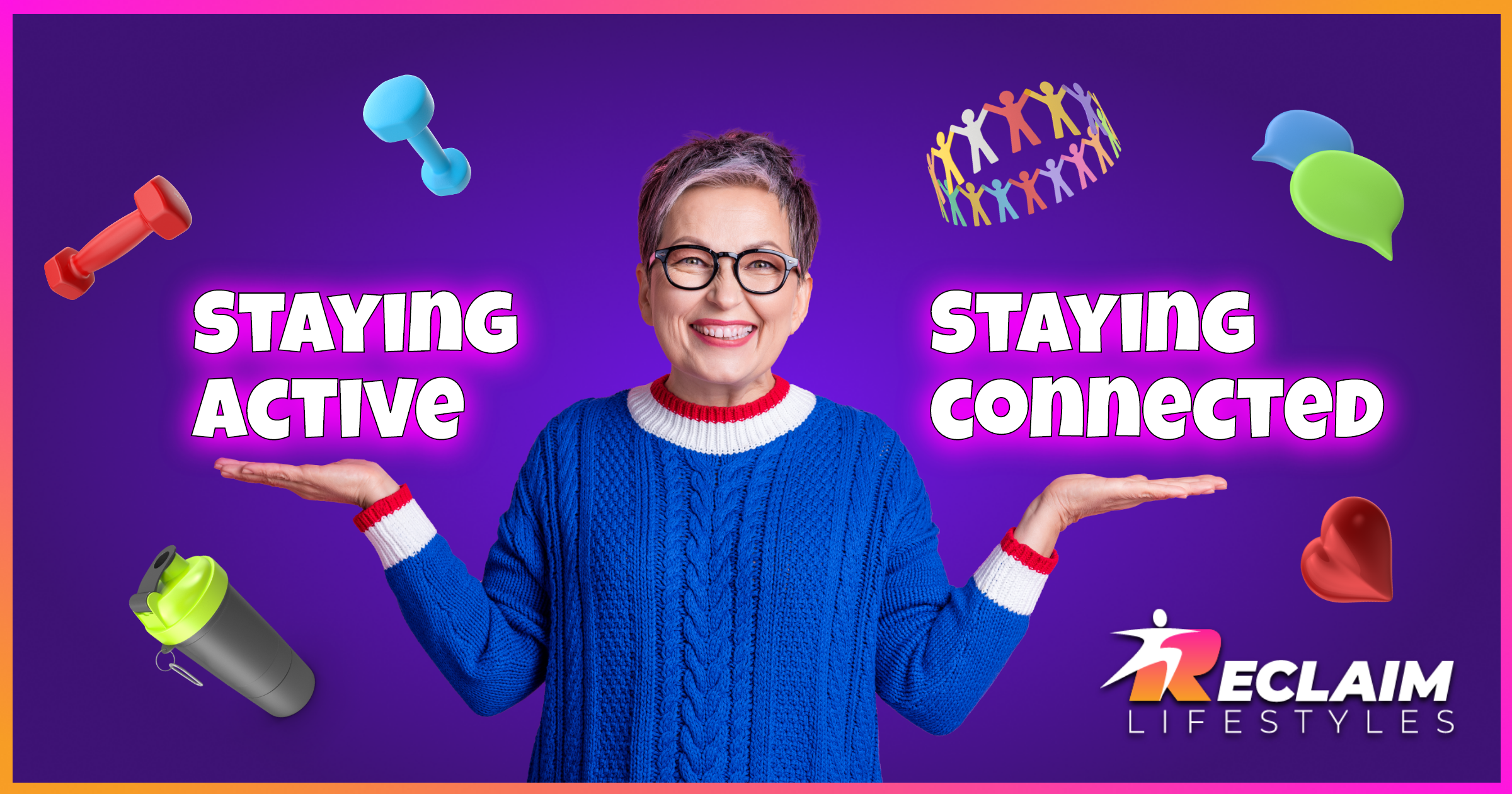Aging & Mental Health: An Ounce of Prevention Is Worth a Pound of Cure
If you ask a doctor what to do about improving mental health in aging adults, you're gonna learn pretty quickly that taking care of your mental health looks a lot like taking care of your physical health—and vice versa. And according to Dr. Larry Gassner, it's mostly about taking a preventive approach to all of it.
As passionately as he feels about the power of prevention, Dr. Gassner saw the concierge medicine model as a better venue for his philosophy and approach to preventive patient care. Working through MDVIP, he appreciates being able to take as much time as he needs with each of his patients and get to know their full stories. His devotion has gotten him recognized, both in review after review on the MDVIP site by patients raving about him, and officially, as a Top Doctor multiple years in multiple publications, including U.S. News.
One of those raving patients is our very own Jeff White, which is how we roped Dr. Gassner into being our medical expert for this and a few more future blogs (thanks again for your time, Doc 😉). So get ready to take some notes on how to maintain and improve your mental health while aging—doctor's orders.
"My happiest patients are the ones who can stay active and connected," says Dr. Gassner. "But," he acknowledges, "we live in a world built for the young." So how do you stay active and connected as an older person in a society that wasn't really designed with you in mind?
Staying Active
Like we mentioned at the top, mental health and physical health are inextricably linked. You can't expect to keep your mind sharp if you let your body waste away. And Dr. Gassner's biggest piece of advice is one that can be difficult to adhere to if you learn it too late: it is easier to STAY active than it is to GET active.
That is to say, if you live a mostly sedentary life until you're 75 and then, perhaps prompted by a major health concern, decide to completely overhaul your life to prioritize your health, it's going to be way more difficult to change your habits at that stage. Whereas if you work on building health-supporting activities into your routines when you're 50 (or 40, or 30! It's never too early!), you're not having to push a boulder from a standstill; the boulder is already in motion.
Age can bring a variety of challenges to staying active, some of which can be difficult to predict or prevent. Accidents happen, people fall, hips break. But recovering from those setbacks can look very different depending on how active you were before the fall. If you've been maintaining your strength, balance, and flexibility, you'll be more resilient and your recovery will likely be faster and easier. And it's important to get back to your regular activity levels as quickly as possible.
Too often, for less active folks, a fall like that can become "the beginning of the end," locking people into physical limitations that can lead to total inactivity and even more isolation. And all of that does nothing to help prevent your mental health from taking a dive.
As health issues stack up as we age, they can become snowballs rolling downhill, becoming larger and larger. But you can level out the downslope by getting and staying physically active—and socially connected. So now let's talk about the importance of staying connected.
Staying Connected
After you wind your way through life milestones like kids and career, and transition into those golden retirement years, you're suddenly without the built-in social networks of an office or a house full of family (especially if your kids established themselves somewhere far from home).
Unfortunately, American society has few if any structures to help seniors stay connected once they've retired. Unless you're lucky enough to afford to live in a nice, social retirement community, or happen to live in a walkable town akin to European villages, or practice multi-generational living like lots of other cultures, many American retirees end up alone a lot of the time. Our car-dependent cities and towns remove the potential for coincidental socialization as you go about your day. And the unspoken stigma of "living with family" as being a sign of some lack of independence or of "being a burden" keeps many folks living in their own houses too independently—essentially completely alone.
We're also living longer than ever, past the ages when now treatable diseases might have taken our grandparents and great grandparents in their 60s or 70s.
But extended lifespans also increase the potential for years of isolation in old age. Dr. Gassner is seeing an increase in dementia and depression, but is it just because more people are living longer? And if you live long enough, you're going to experience some amount of dementia? This is why we talk about healthspans in addition to lifespans around Reclaim Lifestyles. Because we know it's not enough to just live longer. We want you to be able to spend those extra years doing what you love. And staying connected will help you maintain the cognition and mental wellness needed to do that.
Avoiding isolation is one of the first orders of business. And don't let social media fool you: scrolling through your phone on the couch alone might make you feel "connected" to the outside world, but it's a sorry substitute for the power of engaging with other humans IRL (that's "in real life" for the uninitiated).
Whether you're making plans with your friends, hanging out with family, volunteering, picking up some part-time work, or pursuing a hobby in a social setting, the key is to not let yourself get stuck in spending most of your time alone. Be proactive about filling your social calendar as much as possible—bonus points if you schedule in social activities that also get you active. Pickleball, anyone?
Take Care of Yourself Now
Dr. Gassner's advice can sound deceptively simple, but he knows firsthand how difficult it can be for folks to act on it. "I'm essentially asking them to do things they don't really want to do to prevent something that hasn't happened yet and that they believe deep down will never happen to them." But when you see what can happen when you don't live an active, connected lifestyle, either through your own experience or through observation of a loved one, you'll wish you'd taken action sooner.
So don't wait! It's never too early, and it's also never too late to make a positive impact, but the amount of impact you can have will be far greater the sooner you start. Think of it like investing in a retirement account. The amount you invest in your younger years will be worth far more in your later years. So what kinds of deposits can you start making today? In addition to getting and staying active to maintain strength, balance, and flexibility, and staying connected, here are a few more of Dr. Gassner's tips
-
Eat Well
-
-
At a certain point in adulthood, we stop being able to just do whatever we feel like doing when it comes to what and how we consume. Obviously, we all technically have the freedom to, but our bodies keep the score. If your health is a priority, you will probably need to do some amount of meal planning to ensure that you're eating a balanced diet. It might be tough: a lot of us are unlearning decades of habits that were drilled into us from a young age, but you do not, in fact, need to eat a steak and potatoes every single night for it to count as dinner. And if you love wine, try drinking it more slowly so you drink less of it. Alcohol affects all kinds of things, and none of them for the better. (Nope, contrary to popular belief, a glass of red wine is not good for your health, sorry to say.)
-
-
Sleep More
-
Sleep is foundational to every aspect of your health. And not sleeping enough can create vicious cycles, especially when it comes to mental health. Sleep deprivation can lead to cognitive decline, which can lead to depression, which can then further affect your ability to sleep well. If you're consistently getting less than 6 hours of sleep, take a look at your sleep habits. Are you giving yourself enough opportunity to sleep, as in, are you getting in bed at least 7 or 8 hours before you have to get up? Is the room dark and cool enough? Are you staring at a screen in bed? Are you getting sunshine in your eyes during the daytime? If you prioritize your sleep, your body and mind will thank you, now and in the future.
-
There is so much power in taking control of your own health through these first lines of defense: physical activity, social connection, proper nutrition, and good sleep. If your goal is to keep doing all the things you love for years and years past your retirement party, these are the ways you can set yourself up now to live better, longer.
Looking for an easy way to get active? Check out the ReStart! app, launching soon. Get on our email list to be the first to know when it's available for download here:

